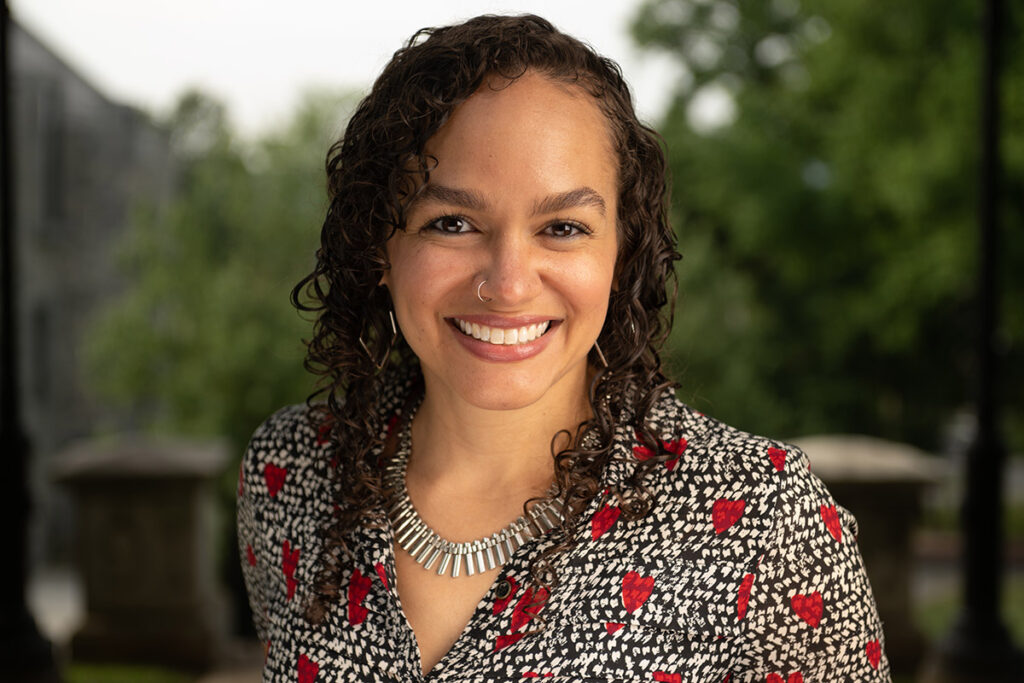Gabrielle Kelenyi and Hongxing Liu to Receive Information Literacy Grants
Gabrielle (Gabbi) Kelenyi and Hongxing Liu will each receive a grant for what they have proposed to do in their respective courses, ENG 240 Introduction of Writing & Rhetoric and ECON 340 Environmental & Resource Economics. Both plan to focus on these areas: identifying and engaging with existing conversations in a related field, seeking out and making use of a wide range of sources, and communicating appropriately to different audiences. In both classes, students will also reflect on their research (and writing) processes.

Assistant Professor of English, Gabrielle Kelenyi
To help students think more intentionally about producing information accessible to audiences beyond academia, Kelenyi will incorporate and interrogate diverse sources of information that students can employ for their research. Such sources include social media posts, literacy narratives, blog posts, peer-reviewed and non-refereed academic pieces, images, and organizer toolkits that are tailored for diverse audiences. She will facilitate class discussions about how source access, selection, and organization can impact who has what information. The annotated bibliography assignment and the final class project, both of which require the utilization of different types of sources and heightened attention to their targeted audiences, will further address the issues of accessibility and power. The final project, a collaboratively developed public-facing syllabus for a writing studies course, will prioritize open-access materials and emphasize use by various communities, such as K-16 students and their families, organizers and activists, people with low literacy, speakers of other languages, educators, and researchers. Kelenyi will be collaborating with librarian Ben Jahre.

Assistant Professor of Economics, Hongxing Liu
Students in Hongxing Liu’s class will research environmental and social issues—their history and differential impact on affected communities—and develop possible policy solutions. Throughout the semester, they will engage with information from diverse perspectives and evaluate it for authority, positionality, credibility, accuracy, and relevance. Students will also consider who and what viewpoints are missing from environmental problem-related conversations and why. For their semester-long project on an environmental challenge, students will be expected to use different types of information, conduct economic analysis, and either modify an existing policy or propose a new one to address the environmental problem. Their proposed policy should highlight the potential distributional impact, unintended consequences, and challenges, and students will present their proposal as if they are making policy suggestions to the federal government. Earlier in the semester, students will, through the Connected Classroom event (pending Landis confirmation), also share their research with elementary school students. Hongxing Liu will be working with Associate and Acting Director of Research and Instructional Services, Lijuan Xu.